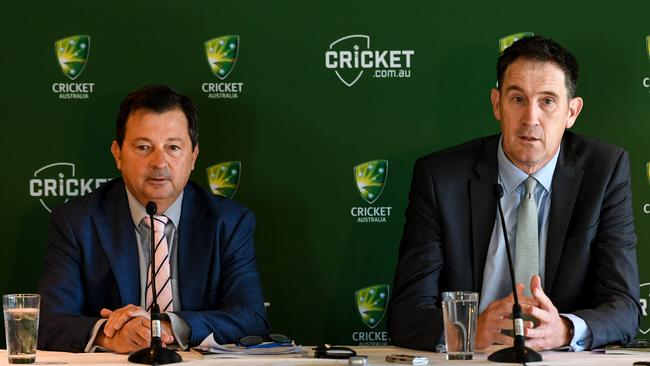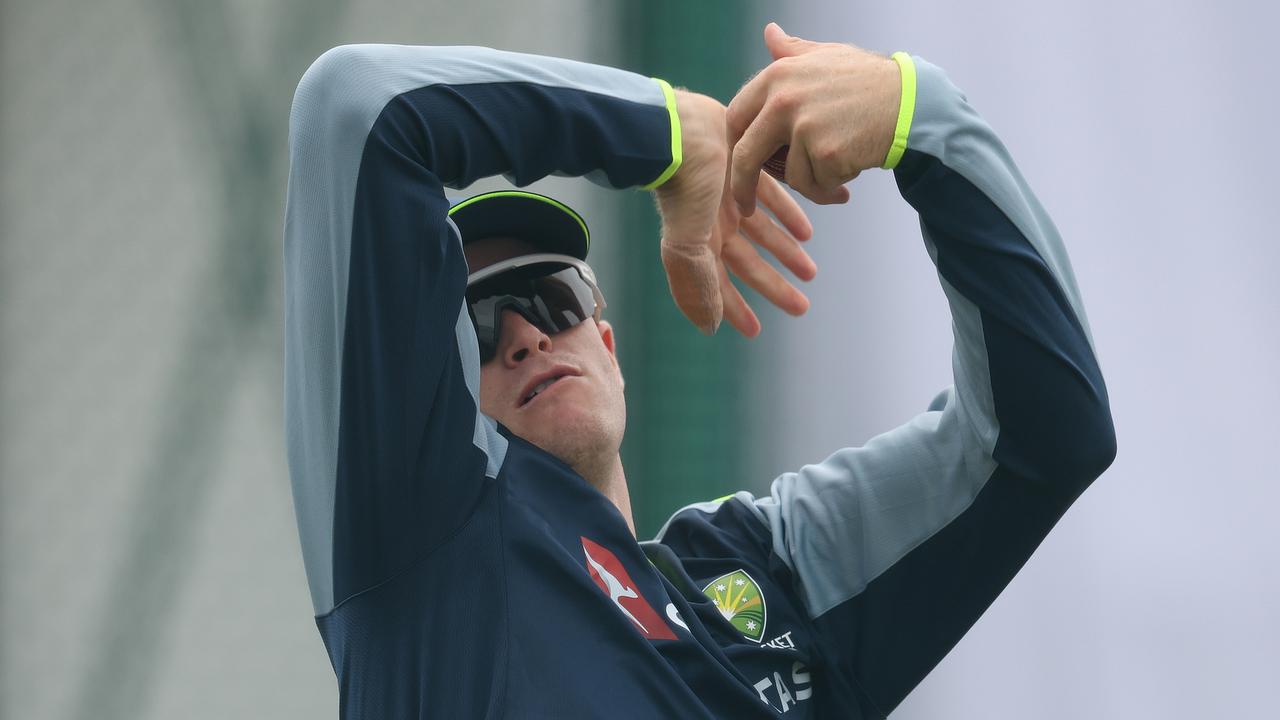James Sutherland departs CA heartbroken by sandpaper scandal
James Sutherland exited the game yesterday expressing his heart break at the fiasco in South Africa.

Cricket Australia chief executive James Sutherland exited the game yesterday expressing his heartbreak at the events in South Africa with a belief that if he had not switched off the television that night, things may have turned out better.
Sutherland stood down after a board meeting re-elected chairman David Peever. Only after the states voted on his tenure did the cricket chief release to them the cultural review into the organisation commissioned after the ball-tampering scandal.
The states had hoped to see the review, but were not handed it until after the AGM which revealed a growth in profits and participation.
Sutherland, who has presided for 17 years at Cricket Australia as the game grew enormously, spoke to Cricinfo, revealing he had turned off the television before Cameron Bancroft was caught with a piece of sandpaper in South Africa.
He says he would have counselled a different approach to the press conference where Steve Smith and Bancroft lied about what they had used to damage the ball.
It is understood Ethics Centre chief Simon Longstaff, who has written the cultural review, had focused in his interviews on the events after play that led to the pair taking that course of action.
Sutherland told Cricinfo’s Dan Brettig: “I’d like to think that my judgment and possibly influence would have meant that the media conference would have gone slightly differently.
“As we know, that was part of the penalty and the severity of the penalty, was to some extent related or at least was consequential in terms of how that was handled —(to) not telling the truth, or not telling the whole truth.’’
“No doubt that homework thing (on the tour of India in 2013), if I’d been anywhere near that, it would have been a different outcome. I’d like to think in some cases where things have gone awry that that’s true. You can’t be everywhere.”
Sutherland’s term should be remembered for the development of the Big Bash, the growth of women’s cricket and the increase in revenue via broadcast rights, but his last two years have been marked by the pay dispute and the sandpaper scandal.
He expressed disappointment at the way team leadership failed to react to warning signs in the first two Tests of the South Africa series.
“I was heartbroken by the events that happened and I think that in some ways I totally understand that in the heat of battle, things can boil over and go awry and there can be regrettable incidents,” Sutherland said. “(But) I think in some ways, the issues of Cape Town were a different thing altogether. It wasn’t necessarily a confrontation between two players; that was a premeditated WTF moment that shocked us all.
“Part of the extent of my disappointment around Cape Town is heightened by what happened earlier in the series, and my feeling that there were warning signals.
“There were lots of other things going on, and some disgraceful behaviour during the Port Elizabeth Test, provocation by opposition fans but also administrators from the opposition team. But still, if you go back to Durban, my views were expressed during and after the Durban Test match … that we needed to take stock and be very aware that when you’re playing South Africa, you’re playing in a cauldron and we’ve got two teams that go very hard at each other.
“Our leadership needs to show restraint and understand that it’s not the first time things have boiled over on the field between CA and South Africa and it won’t be the last time. It’s happened before, particularly on those tours at the end of a long season and to some extent it was predictable.
“But my view was that, putting everything aside from Durban it was time to understand and settle back in to playing good, hard cricket.”
Peever, meanwhile, deflected concerns about his renewed tenure, which led to the protest resignation of board member Bob Every. Peever said he was asked to stay on.
Peever said: “I was asked to continue in the context of the change going on, not only in Australia but internationally, because I do believe internationally cricket is in one of the periods of the most profound change in its history.
“Notwithstanding the fact its popularity is also at an all-time high. But there are risks to cricket as we know it, especially the primacy of international cricket needs to continue to be reinforced, so with all of that going on, I felt continuity was important. So I agreed with the request to continue.
“An event like South Africa undoubtedly damages faith in cricket and we’re conscious of that, and we’re conscious that we need to work much harder with the grass roots, and much harder with our fans.


